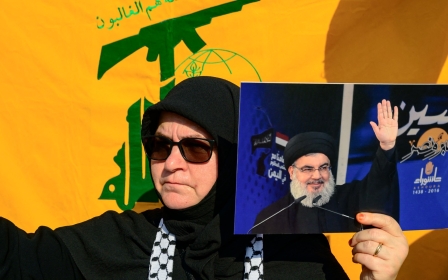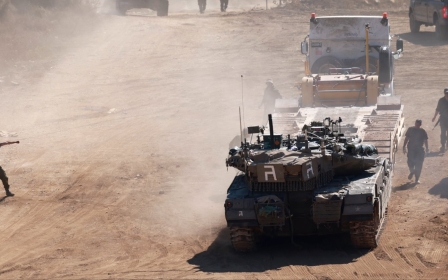US not evacuating citizens from Lebanon 'at this time' and insists Israel must defend itself
Despite reports of an “imminent” Israeli ground invasion into Lebanon on Monday, the US State Department maintains that there are no plans for the government to evacuate American citizens “at this time” and that Israel must defend itself through “military pressure”.
This comes as the Pentagon announces the deployment of “a few thousand” US troops to support several fighter jet squadrons in the Middle East. They are intended to protect US bases and other assets in the region, Secretary of Defence Lloyd Austin said.
The move signals a significant escalation, even as the US maintains that Israel’s ground invasion would be “limited” in scope.
“They have at this time told us that those are limited operations focused on Hezbollah infrastructure near the border. But we're in continuous conversations with them,” State Department spokesperson Matthew Miller told reporters.
Military pressure, he added, is needed to enable a diplomatic resolution between Israel and Lebanon.
New MEE newsletter: Jerusalem Dispatch
Sign up to get the latest insights and analysis on Israel-Palestine, alongside Turkey Unpacked and other MEE newsletters
“It is also true that military pressure can lead to miscalculation. It can lead to unintended consequences. We are in conversation with Israel about all those,” Miller said.
“We support their right to defend themselves against terrorism.”
Cross-border fire
Hezbollah began firing rockets at Israel after the Hamas-led attacks on southern Israel on 7 October, in a bid to support the Palestinian group. The Lebanese movement’s targets had largely remained close to the border and within the longstanding rules of engagement between the two sides, but have led to the displacement of at least 60,000 Israelis living along the Israel-Lebanon border.
Lebanon's Prime Minister Najib Mikati said on Sunday that as many as 1 million have been displaced from southern Lebanon due to Israeli strikes on the region.
Hezbollah has said it would cease its attacks if Israel ends its assault on Gaza.
While Israel has fired back, that exchange has not been even. In data compiled up until 20 September, Israel had launched more than eight times as many projectiles into Lebanon as Hezbollah launched into Israel, according to The Armed Conflict Location and Event Database.
Asked on Monday how much he knows about further escalation by Israel, US President Joe Biden said he’s “comfortable with [the Israelis] stopping”.
“We should have a ceasefire now," he told reporters, referring to last week’s 21-day plan put forward by the US and France during the gathering of world leaders at the UN General Assembly in New York City.
State Department spokesperson Matthew Miller was pressed on what that plan meant, given repeated statements from US officials about how Israel has a right to defend itself.
“I think sometimes people either misinterpret or have their own version of what a ceasefire is,” Miller told reporters. “A ceasefire is not one side in a conflict unilaterally putting down its arms and stopping the conflict. It is an agreement for both sides to stop the conflict.”
“We want to ultimately see a diplomatic resolution to this conflict, one that allows citizens on both sides of the border to return to their homes,” he added.
As for Americans still in Lebanon, Miller advised seeking what commercial airlines may offer.
“We always conduct a prudent planning process. We have been doing that for some months, going all the way back to October 7, but at this time, there's still commercial options available.”
Those commercial options, per online booking rates, start at about $8,000.
Middle East Eye delivers independent and unrivalled coverage and analysis of the Middle East, North Africa and beyond. To learn more about republishing this content and the associated fees, please fill out this form. More about MEE can be found here.




